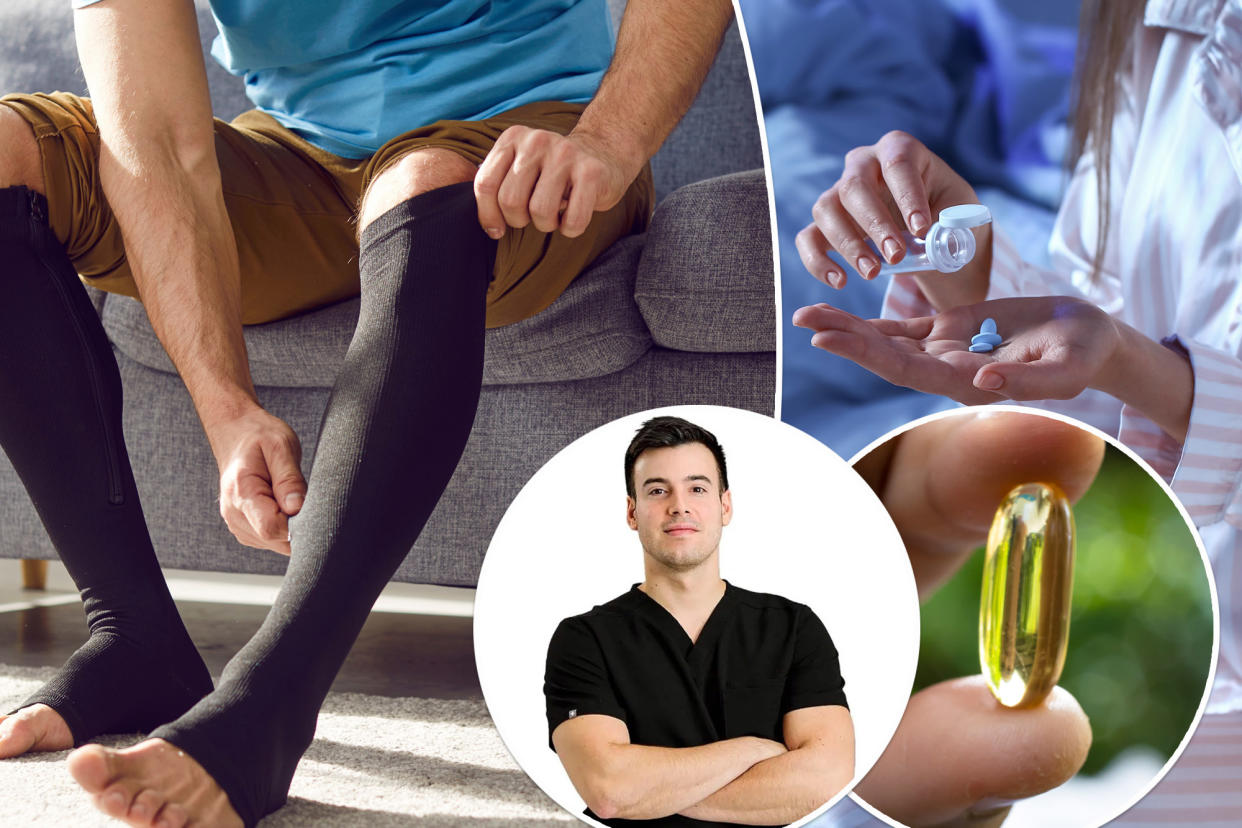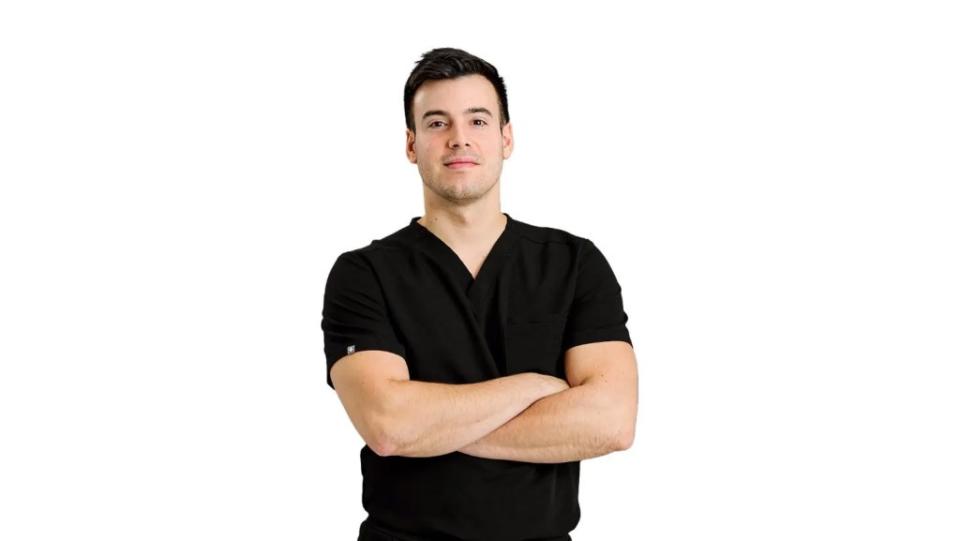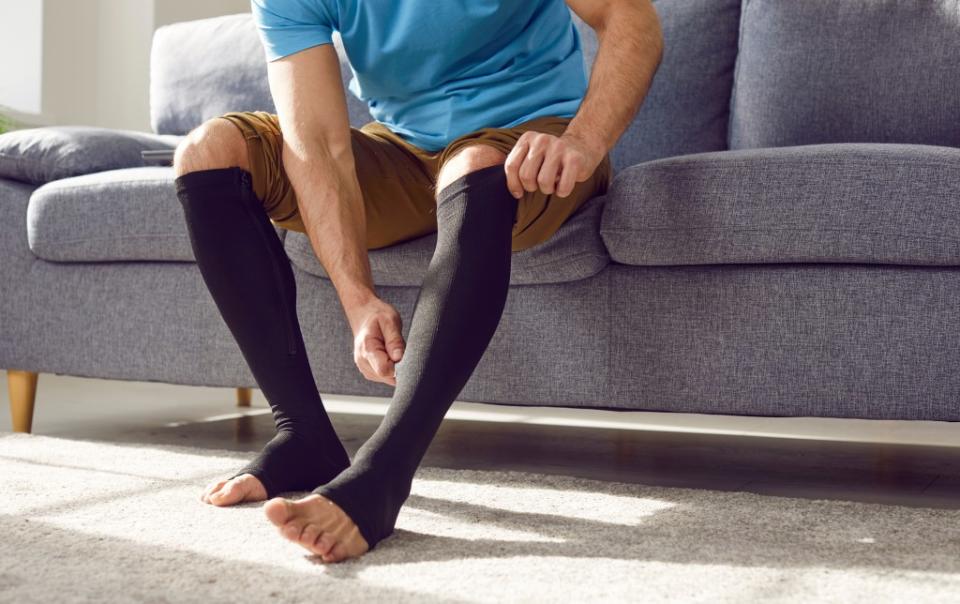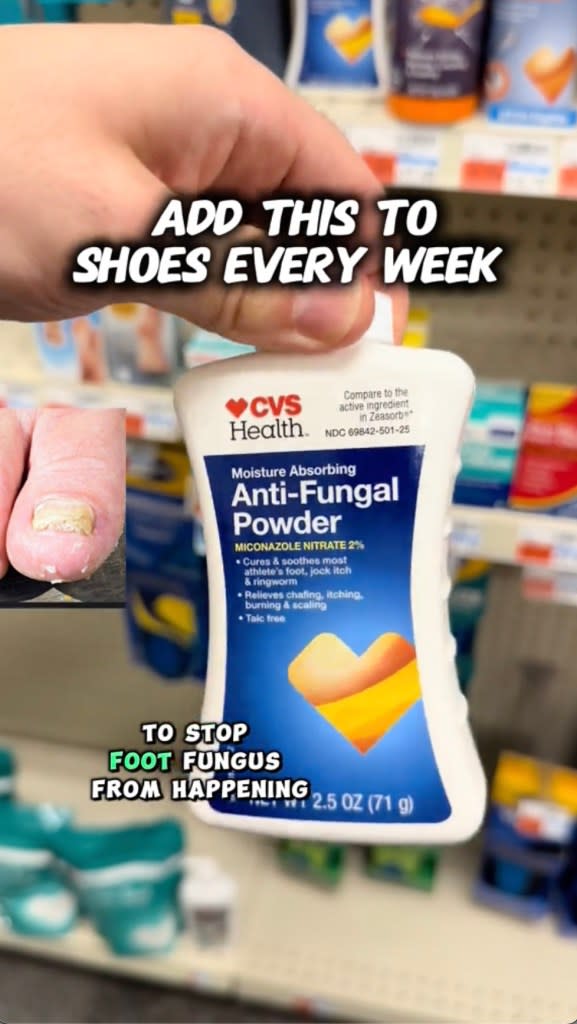I’m a doctor — these 5 easy hacks can help you live longer

Try these five if you want to stay alive — longer.
NYC board-certified dermatologist Charles Puza is sharing five “doctor hacks” to “stay healthy for as long as possible.” He advises wearing compression socks, avoiding over-the-counter sleep aids, sprinkling anti-fungal powder in shoes, increasing protein intake and taking fish oil and vitamin D supplements.

Wear compression socks
“Literally everyone’s legs should be wearing compression socks regularly,” Puza, who studied at Harvard and Duke universities, declared in the 24-second TikTok he posted Monday.
Compression socks gently apply pressure to ankles and legs, which can help improve blood flow, reduce swelling and pain and prevent blood clots.
The tight-fitting socks are especially recommended for surgical patients, to aid in their recovery; for travelers who plan to sit for a long time, to decrease their risk of developing blood clots; for pregnant women, to support strained veins and help relieve swelling; for runners and athletes, to prevent injury and promote recovery; and for workers often on their feet, to reduce pain and fatigue.

Stop using over-the-counter sleep aids
“Sorry, but you have to stop using sleep aids because they increase the risk of dementia,” Puza advised as he pointed to packages of Benadryl on a store shelf.
Benadryl, used to treat allergies and itchy skin, is part of a class of drugs known as anticholinergics, which are often used as sleep aids.
Research has tied frequent sleep medication use to an increased risk of dementia for some people.
But geriatrician Dr. Christopher Paredes, an assistant professor of medicine at the Donald and Barbara Zucker School of Medicine at Hofstra/Northwell Lenox Hill Hospital, says “the link is not totally clear.”
While other anticholinergics have been researched, “there are no studies that found that Benadryl specifically causes dementia,” Paredes told HealthCentral in February.

Use anti-fungal foot powder regularly
Anti-fungal foot powder can absorb moisture and prevent the growth of fungus.
It should be sprinkled between the toes, on the feet and in socks and shoes.
“Everyone with feet should be using this in their shoes weekly to stop foot fungus from happening,” Puza said.
However, WebMD cautions against applying it more often than your doctor recommends.

Increase protein intake as you age
Protein is needed to preserve bone health and muscle mass and to prevent osteoporosis.
The recommended daily protein intake for adults is 0.8 grams of protein per kilogram of body weight, so a 150-pound man should consume 55 grams of protein a day.
But research published last year suggests older adults could benefit from consuming 1 to 1.6 grams of protein per kilogram of body weight every day, which would be 68 to 109 grams for a 150-pound person.
Protein sources include lean meats, poultry, fish, seafood, eggs, dairy, nuts, legumes, chickpeas and tofu.

Add supplements to your diet
“I love recommending fish oil for heart health and vitamin D for healthy bones,” Puza shared.
Fish oil contains omega-3 fatty acids, which are good for the heart and brain.
However, the research evidence on the purported health benefits of fish oil supplements is mixed.
For adults who take it, it’s generally safe to consume up to 3,000 milligrams of fish oil daily, Healthline reports.
The recommended intake for vitamin D depends on age, but it’s typically between 10 and 20 micrograms a day.